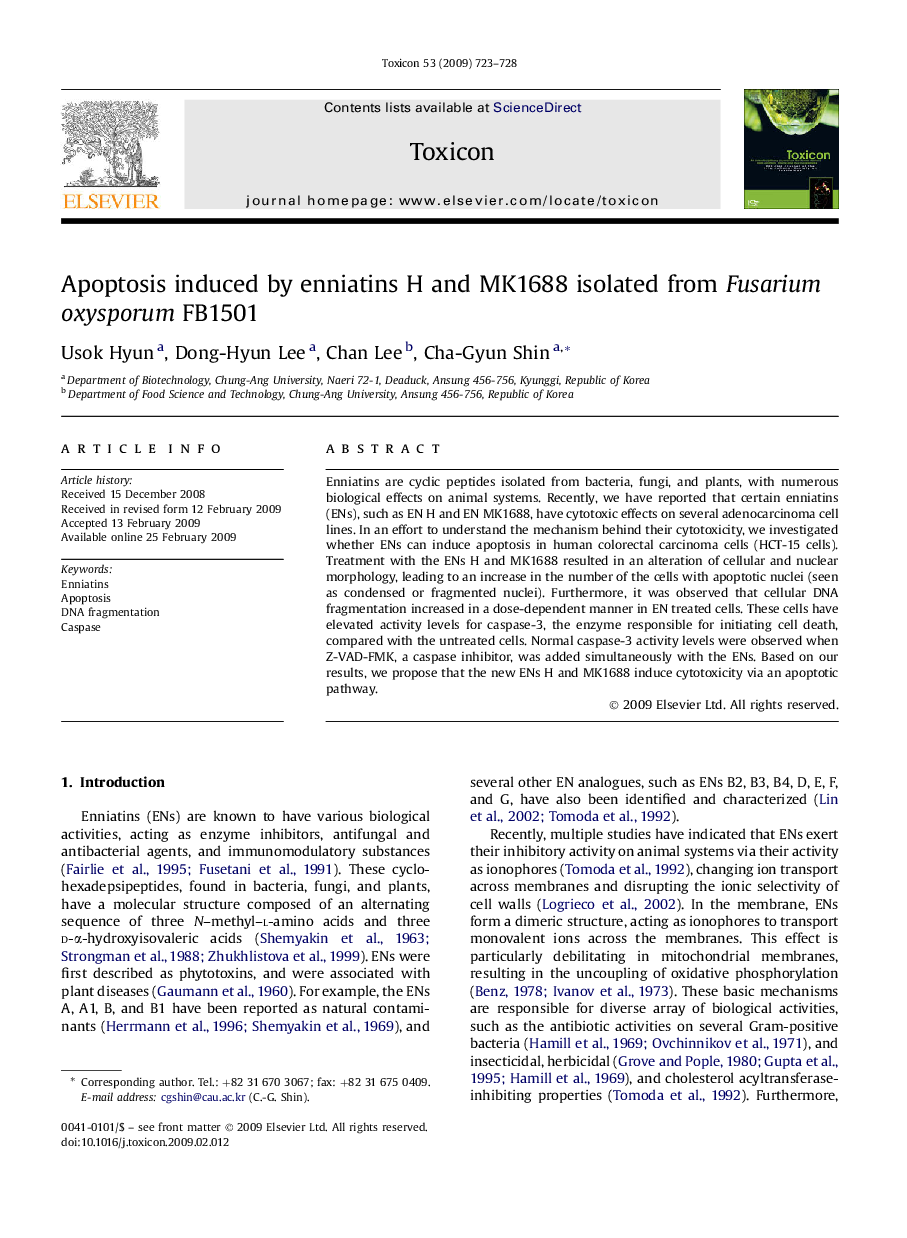| Article ID | Journal | Published Year | Pages | File Type |
|---|---|---|---|---|
| 2065267 | Toxicon | 2009 | 6 Pages |
Enniatins are cyclic peptides isolated from bacteria, fungi, and plants, with numerous biological effects on animal systems. Recently, we have reported that certain enniatins (ENs), such as EN H and EN MK1688, have cytotoxic effects on several adenocarcinoma cell lines. In an effort to understand the mechanism behind their cytotoxicity, we investigated whether ENs can induce apoptosis in human colorectal carcinoma cells (HCT-15 cells). Treatment with the ENs H and MK1688 resulted in an alteration of cellular and nuclear morphology, leading to an increase in the number of the cells with apoptotic nuclei (seen as condensed or fragmented nuclei). Furthermore, it was observed that cellular DNA fragmentation increased in a dose-dependent manner in EN treated cells. These cells have elevated activity levels for caspase-3, the enzyme responsible for initiating cell death, compared with the untreated cells. Normal caspase-3 activity levels were observed when Z-VAD-FMK, a caspase inhibitor, was added simultaneously with the ENs. Based on our results, we propose that the new ENs H and MK1688 induce cytotoxicity via an apoptotic pathway.
